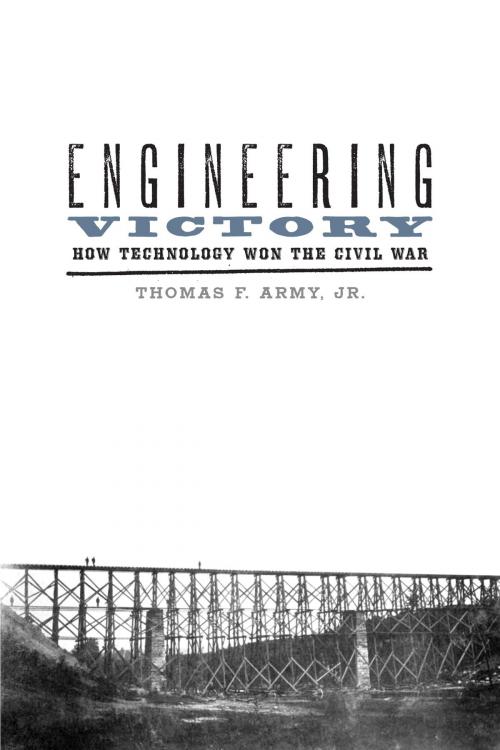Engineering Victory
How Technology Won the Civil War
Nonfiction, Science & Nature, Technology, Engineering, History, Americas, United States, Civil War Period (1850-1877)| Author: | Thomas F. Army Jr. | ISBN: | 9781421419381 |
| Publisher: | Johns Hopkins University Press | Publication: | June 1, 2016 |
| Imprint: | Language: | English |
| Author: | Thomas F. Army Jr. |
| ISBN: | 9781421419381 |
| Publisher: | Johns Hopkins University Press |
| Publication: | June 1, 2016 |
| Imprint: | |
| Language: | English |
Engineering Victory brings a fresh approach to the question of why the North prevailed in the Civil War. Historian Thomas F. Army, Jr., identifies strength in engineering—not superior military strategy or industrial advantage—as the critical determining factor in the war’s outcome.
Army finds that Union soldiers were able to apply scientific ingenuity and innovation to complex problems in a way that Confederate soldiers simply could not match. Skilled Free State engineers who were trained during the antebellum period benefited from basic educational reforms, the spread of informal educational practices, and a culture that encouraged learning and innovation. During the war, their rapid construction and repair of roads, railways, and bridges allowed Northern troops to pass quickly through the forbidding terrain of the South as retreating and maneuvering Confederates struggled to cut supply lines and stop the Yankees from pressing any advantage.
By presenting detailed case studies from both theaters of the war, Army clearly demonstrates how the soldiers’ education, training, and talents spelled the difference between success and failure, victory and defeat. He also reveals massive logistical operations as critical in determining the war’s outcome.
Engineering Victory brings a fresh approach to the question of why the North prevailed in the Civil War. Historian Thomas F. Army, Jr., identifies strength in engineering—not superior military strategy or industrial advantage—as the critical determining factor in the war’s outcome.
Army finds that Union soldiers were able to apply scientific ingenuity and innovation to complex problems in a way that Confederate soldiers simply could not match. Skilled Free State engineers who were trained during the antebellum period benefited from basic educational reforms, the spread of informal educational practices, and a culture that encouraged learning and innovation. During the war, their rapid construction and repair of roads, railways, and bridges allowed Northern troops to pass quickly through the forbidding terrain of the South as retreating and maneuvering Confederates struggled to cut supply lines and stop the Yankees from pressing any advantage.
By presenting detailed case studies from both theaters of the war, Army clearly demonstrates how the soldiers’ education, training, and talents spelled the difference between success and failure, victory and defeat. He also reveals massive logistical operations as critical in determining the war’s outcome.















